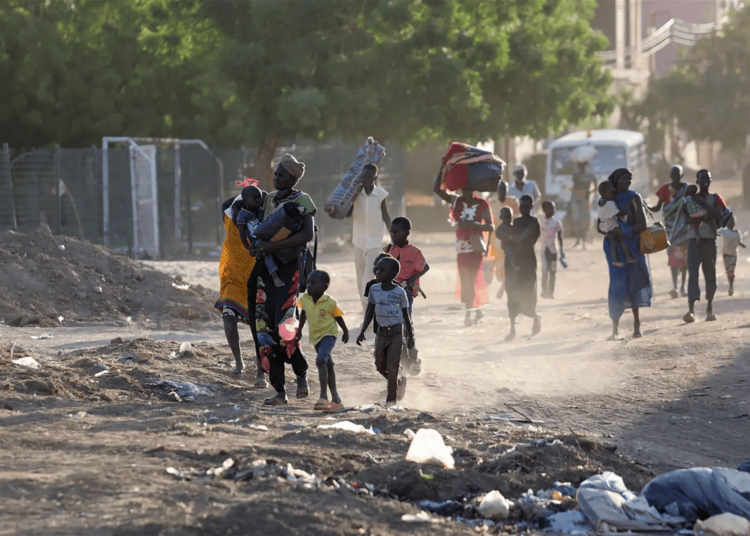Countries are making desperate attempts to evacuate their citizens from crisis-ravaged Sudan after more than a week of fighting there.
The Red Cross said the situation now “untenable” for civilians left without food or water, and some hospitals had stopped working, spokeswoman Alyona Synenko said.
Although the warring factions of Fattah al- Burhan who is heading the Sudanese army and the Paramilitary Rapid Support Force(RSF) led by Mohammed Dagalo, on Monday announced another 72 hour ceasefire, people no longer have confidence in the ceasefires as both sides have ignored previous ceasefires and continued the bloody contestation for power in the country.
On Monday countries continued to evacuate their citizens even as convoys leaving the capital Khartoum had encountered robbery and looting, US Secretary of State Antony Blinken said.
Numerous countries have evacuated their civilians – and thousands of other people have made risky escapes.
Many of those who have left Khartoum headed to other parts of the country where they have family ties – leaving parts of the city centre completely deserted.
Others have gone north to Egypt by bus, or headed south.
Multiple countries have stepped up efforts to evacuate diplomats and civilians from Khartoum.
By Monday about 1,100 European Union citizens had been taken out of Sudan, an EU diplomatic source told the BBC. The bloc believed about 1,700 EU citizens had been in Sudan when the fighting began.
The US said it had airlifted fewer than 100 people by helicopter on Sunday in a “fast and clean” operation. The American embassy in Khartoum is now closed, and a tweet on its official feed says it is not safe for the government to evacuate private US citizens.
The UK government airlifted British diplomats and their families out of the country. Foreign Minister James Cleverly said options to evacuate remaining Britons were “severely limited”. Canada has evacuated its diplomatic staff.
Turkey – a key player in Sudan – began evacuation efforts by road from the southern city of Wad Medani on Sunday, but plans from one site in Khartoum were postponed after a nearby explosion.
More than 150 people – mostly citizens of Gulf countries, as well as Egypt, Pakistan and Canada – were evacuated by sea to Saudi Arabia.
Long lines of UN vehicles and buses were seen leaving Khartoum on Sunday, heading east towards Port Sudan on the Red Sea and carrying “citizens from all over the world”, a Sierra Leonean evacuee told AFP news agency.
However many foreign students from Africa, Asia and the Middle East are among the foreigners still trapped in Khartoum.
The western region of Darfur – where the RSF first emerged – has also been badly affected by the fighting.
The UN has warned that up to 20,000 people – mostly women and children – have fled Sudan to seek safety in Chad, across the border from Darfur.
However in other parts of the country, some semblance of normalcy has emerged.
Nigerians In Sudan Safe, Will Be Evacuated Soon – Onyeama
In Omdurman, across the Nile from Khartoum, there has been less gunfire and explosions than in previous days, possibly to allow civilians to leave. Heavy fighting outside the army headquarters has stopped.
As a result, for the first time since hostilities broke out more than a week ago, women and children have been out on the streets, visiting neighbours and going to markets, which still have some basic supplies such as oil and wheat. There are long queues outside the few bakeries that remain open.
More than 400 people have died in the conflict, and thousands have been injured, according to the latest tally from the World Health Organization. But it is feared the true toll is much higher.
Several ceasefires that seemed to have been agreed were subsequently ignored – including a three-day pause to mark the Muslim holiday of Eid al-Fitr, which started on Friday.
The UN’s World Food Programme says the fighting could plunge millions more Sudanese into hunger in a country where a third of the population already struggles to get enough to eat.





